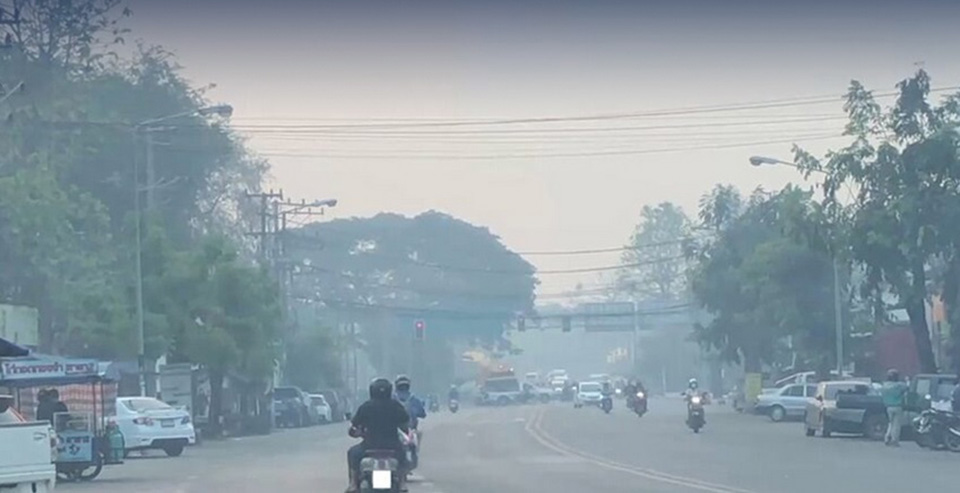
The haze situation in a northern province escalated on Tuesday (Feb 27), with the provincial capital earning the dubious distinction of leading the world’s top 10 most polluted cities. The deteriorating air quality is primarily due to ongoing forest fires, which have been raging for approximately two weeks.
The Geo-Informatics and Space Technology Development Agency (GISTDA) reported detecting 1,420 hotspots across the region on Monday, with 193 located in Chiang Mai alone. These fires span across various types of land, including forest conservation and reserve areas, agricultural lands, land reform areas, and community zones.
Officials said the issue is not isolated to Thailand, as neighboring countries such as Cambodia, Myanmar, Laos, and Vietnam also report significant numbers of hotspots, contributing to the transboundary haze. They noted that the persistent fires in Chiang Mai have been exacerbated by winds pushing smoke and dust into urban areas, worsening the air quality.
Efforts to combat the fires are underway, with more than 220 officials deployed to tackle a significant blaze in Ob Luang National Park’s Doi Pha Dam, which has already consumed about 220 rai of land. The Chiang Mai deputy governor highlighted that most of these fires are manmade, yet efforts to extinguish them are hampered by financial limitations and regulatory challenges.
Prime Minister Srettha Thavisin has since called for collaboration with Cambodia to address the cross-border haze issue, proposing the formation of a joint team to tackle the problem. (NNT)








